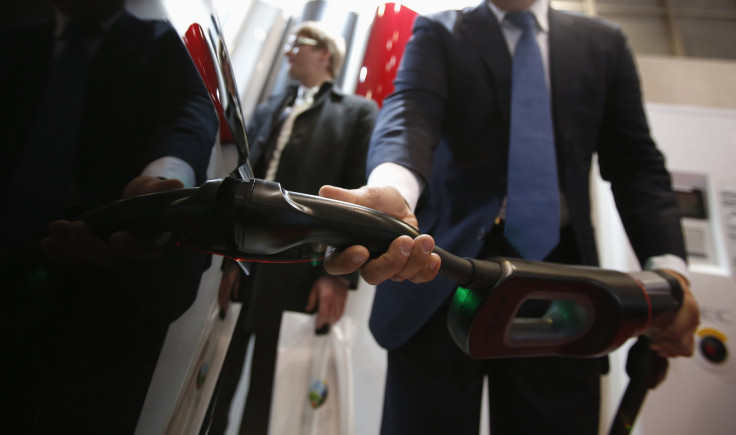China To Unleash $16 Billion For Electric Car Charging Stations To Boost Driver Interest In Battery-Powered Cars

China is considering a massive government program to build more charging stations for electric vehicles and boost demand for the eco-friendly cars. The policy, which could provide as much as 100 billion yuan ($16 billion) in funding, will be announced soon, two people familiar with the matter told Bloomberg News this week.
Bloomberg said its sources asked not to be named because the policy discussions are private, and they declined to say how long the program would last or which types of electric cars could use the chargers.
Fast and easy access to charging stations is seen as critical for the widespread adoption of electric vehicles. Most drivers are accustomed to pulling over at a nearby gas station whenever the tank runs low, so the idea of being stuck on the road with a dying battery and nowhere to charge has deterred many car shoppers from going electric.
To combat “range anxiety,” automakers are investing in charging networks that would allow their customers to travel longer distances. California-based Tesla Motors Inc. (NASDAQ:TSLA) has installed more than 100 of its “superchargers” across the United States and about 70 in Europe and Asia, with plans to build more in the next year. The company announced last week that it would build a network in Australia to complement the rollout of its Model S luxury sedan in the country. Germany’s Bayerische Motoren Werke AG (ETR:BMW) said earlier this month that it was launching its own network of charging stations to make its i3 city car more convenient.
News of China’s charging-station initiative follows a slew of central government policies aimed at increasing electric car adoption – part of China’s broader effort to reduce crippling air pollution in its cities and improve public health. Chinese carmaker BYD Company Ltd (HKG:1211), which is backed by U.S. billionaire Warren Buffett, said it has benefited from the government’s recent push.
BYD’s revenue from “new energy” vehicles, including all-electric and hybrid-electric cars and buses, surged more than tenfold to 2.7 billion yuan ($440 million) in the first half of 2014, according to its Shenzhen Stock Exchange filing. The company said that 2014 “is a key year for the development of new energy vehicles,” and that it would look to “grasp this huge opportunity and promote the use of new energy vehicles both home and abroad,” Reuters reported.
© Copyright IBTimes 2024. All rights reserved.





















